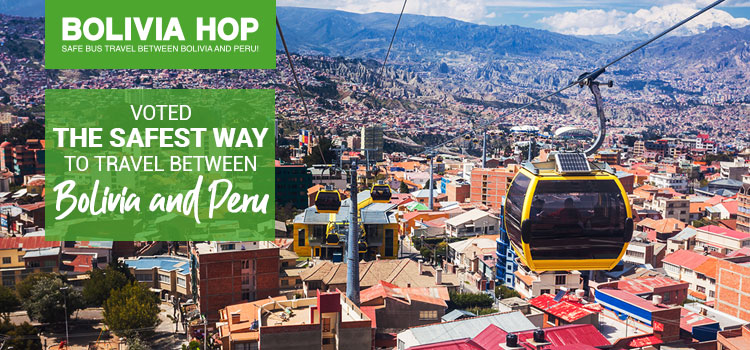Sucre can easily be reached from La Paz by bus, either by a direct and surprisingly pleasant overnight trip, or via some of Bolivia’s other popular destinations such as Cochabamba, Oruro and Potosi.
Route Options
To get to Sucre from La Paz by bus, there are two main routes. The first goes via Cochabamba and enters Sucre from the North. It takes about 6 hours to get to Cochabamba, then a change and another 12 hours (overnight) to reach Sucre. The direct road between Cochabamba and Sucre is generally described using words like “hellish” – much of the road is windy and unpaved.
The second route takes the lower-lying road through Oruro and Potosi. It enters Sucre from the South on a gently winding paved road, which is considered to be the best road into the city. The trip takes around 12-13hrs, and can be broken up with stops at Oruro and Potosi if desired. Note that buses only run the Oruro to Potosi route at night, so making the entire journey by day is not an option.
It is advisable to avoid the Cochabamba to Sucre leg if you value your sleep and sanity. If you do want to see Cochabamba, it is best to cross to Oruro afterwards and make your way to Sucre from there.
Going Direct
Should you choose to do the La Paz to Sucre route in one go, you’re looking at around a 12-13hr trip, though be prepared for it to take longer in certain circumstances. Given the length and inexpensiveness of the journey, it will generally be worth your while to book a “full cama” bus, i.e. one with seats that recline to form a fully horizontal bed.
The full-cama option is available on Trans Copacabana and El Dorado. Full-cama seats cost around 180Bs (US$26). Other operators offer the cheaper semi-cama option, with seats that recline most, but not all, of the way back.
While tickets can be purchased at La Paz bus station on the day, when possible, try to book your bus tickets in advance from Tickets Bolivia as seats do sell out due to the popularity of the route:
Sucre Life Quick Tip:
As voted the best way to travel around Bolivia and Peru, we highly recommend choosing Bolivia Hop as your means of transport. Their safe, flexible and trustworthy service have proven to be the best way of getting the most out of your time in South America!
The Road
We had heard bad things about Bolivian roads, and chose to enter Sucre via Potosi to minimize any discomfort. The route turned out to be very pleasant. The road is paved the whole way. From La Paz, the road runs straight and smooth (with only the occasional bump) almost until Potosi at which point it starts to gently meander through the hills, culminating in some beautiful sunrise views of the town. The curves gradually sharpen on road in to Sucre from Potosi, but never reach the point of discomfort – the curves are quite long and slow so you don’t really notice them much. All in all, the journey from La Paz to Sucre is one of the better bus journeys to be made in South America and the reward of reaching Sucre makes it well worth the trip.
Times and Prices
Please note: The below information is a guide only and should not be used as your sole means of trip research. When planning travel between La Paz and Sucre we suggest going to the bus terminal or to a travel agency to acquire the most accurate and up-to-date information.
Cost for a one way bus ticket between La Paz and Sucre are as follows:
- Bs. 45 ($6.50) for a seat on a local bus
- Bs 117 ($17) for a semi-cama seat (140-degree reclining seats)
- Bs. 180 (US$26) for a full cama seat (180-degree reclining seats)
Direct buses for Sucre leave from La Paz’s Terminal de Buses between 6:30pm and 8pm.
Direct buses for La Paz leave from Sucre’s Terminal de Buses between 6:30pm and 8pm.
Accommodation in Sucre
If you haven’t already, be sure to book your accommodation in Sucre as soon as possible to avoid missing out.
Conclusion
The journey from La Paz to Sucre is cheap and painless, and can easily be done in one go. For those who want to do a bit more sight-seeing along the way, there are a range of options for breaking up the journey to take in Cochabamba, Oruro and/or Potosi.


Leave a Reply